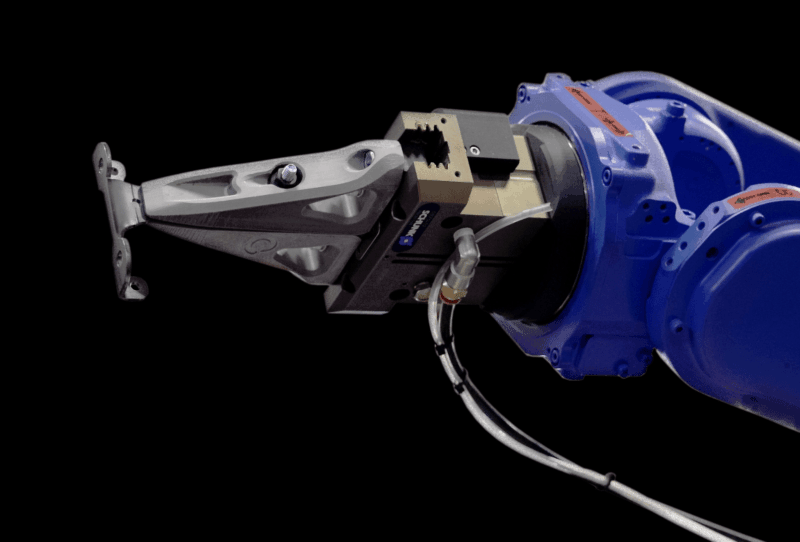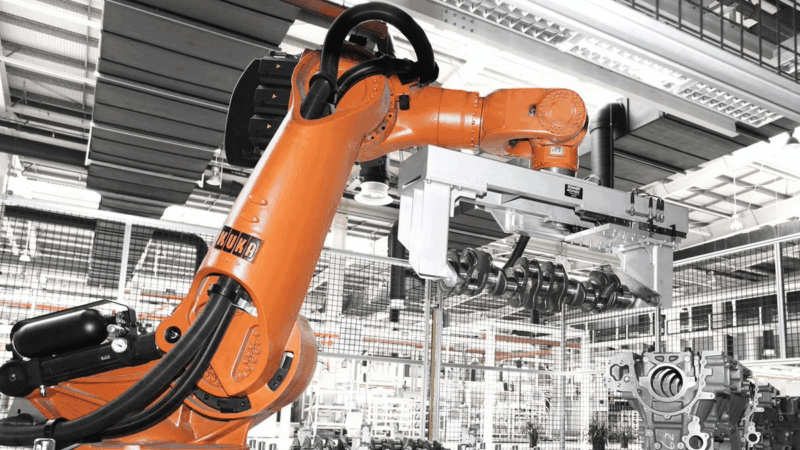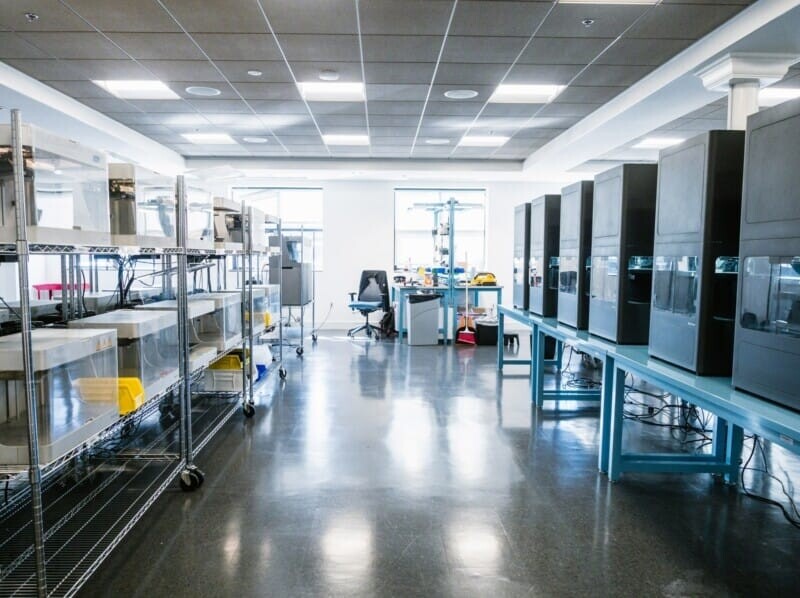
World's Largest Distributed Manufacturing Network Activated to Aid Ukraine with 3D Printed Tourniquets
How Project DIAMOnD is 3D printing tourniquet parts for Ukraine
Every day, hour and minute matters when an emergency arises. Automation Alley formed Project DIAMOnD with this need in mind — in response to a request for aid, manufacturers can use 3D printing to swiftly produce and supply critical parts on a moment’s notice.
Earlier this month, the world’s largest distributed fleet of 3D printers was activated for the first time when Project DIAMOnD decided to use its emergency response network of over 300 Markforged 3D printers to manufacture clips for tourniquets, which will then be shipped overseas to aid Ukrainians in need of medical assistance. Project DIAMOnD’s network of participating manufacturers all across Michigan are using their professional 3D printers to fulfill this request for the Ukrainian Defense Ministry. Markforged is partnering with Project DIAMOnD to aid Ukraine amidst the humanitarian crisis, donating 150 spools of Onyx material.

What is Project DIAMOnD?
Project DIAMOnD (Distributed, Independent, Agile Manufacturing on Demand) is an initiative started by Automation Alley, a nonprofit Industry 4.0 knowledge center based in Michigan. Grant funding from the CARES ACT in 2020 from Michigan’s Oakland and Macomb counties enabled Automation Alley to start Project DIAMOnD to improve local manufacturers’ agility and resiliency by helping them scale up their Industry 4.0 activity, while also creating a large-scale emergency response network for printing physical objects on demand.
In exchange for supplying small to mid-sized manufacturers around Michigan with professional 3D printers, Project DIAMOnD uses Markforged software to create a distributed manufacturing network with the ability to print personal protective equipment (PPE) and other critical medical equipment when called upon to do so, with the simple click of a button.
Using Eiger 3D printing software for slicing, storing and printing parts, each 3D printer is connected to a centralized, secure cloud network. While Automation Alley initially conceived Project DIAMOnD to fill a critical gap in the supply chain to support the ongoing COVID-19 pandemic, its distributed network of 3D printers is designed to support different kinds of crises through swift use of additive technologies.

Manufacturers Taking Action
“As a manufacturer, Project DIAMOnD has allowed us to experiment with 3D printing and innovate for our own business while simultaneously giving us the opportunity to aid in humanitarian efforts when called upon. It’s a win-win,” said Richard Canny, President of Ultimation Industries, LLC, a designer and manufacturer of conveyors based in Roseville, Mich.
“Through Project DIAMOnD, we’ve been able to implement a full digital process and we are really happy to be able to assist with this particular Ukrainian effort. It’s a small thing, but we are delighted to be able to help out. It’s one great example of how additive manufacturing can respond to a need like this quickly.”

The speed, flexibility, and digital nature of additive manufacturing technologies make the format of a large-scale 3D printer network especially well-suited to support the manufacturing of time-critical medical parts. Eiger provides a digital repository for part files. After Danish 3D printing organization Makershelp designed the 3D printed tourniquet clip, Automation Alley used its connected cloud network to instantaneously distribute the part file as digital inventory to its entire distributed network of manufacturers across Michigan for printing.
While coordinating a mass print job across over 300 different manufacturers sounds daunting, 3D printer software makes it simple for Automation Alley to initiate print jobs across the geographically disparate points.
Timely production of these tourniquet clips would not be possible using traditional manufacturing processes. Such techniques require requisite tooling to be manufactured in order to start producing the final part. Relying on injection molding would mean inevitable delays in the ballpark of multiple weeks before the earliest steps of tourniquet production can be initiated.
“The specific part that the Ukrainian government needed was a tourniquet clip that cannot be easily produced using conventional means quickly because of turnaround times in mold making. The 3D printers and the Onyx material we have available through Project DIAMOnD was a perfect fit for this application,” said Pavan Muzumdar, Automation Alley COO. “We are grateful to be able to help the people of Ukraine in some way.”
After each of the tourniquet clips printed by manufacturers across Michigan, they will be sent to Makershelp in Denmark for assembly into complete tourniquets and distribution to Ukraine.
Learn More about 3D Printing Technologies

Additive Manufacturing in 2022: Why Additive, and Why Now?

Industry 4.0 in the Context of Professional 3D Printers

Additive Manufacturing History: From the 1980's to Now
All of the blogs and the information contained within those blogs are copyright by Markforged, Inc. and may not be copied, modified, or adopted in any way without our written permission. Our blogs may contain our service marks or trademarks, as well as of those our affiliates. Your use of our blogs does not constitute any right or license for you to use our service marks or trademarks without our prior permission. Markforged Information provided in our blogs should not be considered professional advice. We are under no obligation to update or revise blogs based on new information, subsequent events, or otherwise.
Never miss an article
Subscribe to get new Markforged content in your inbox